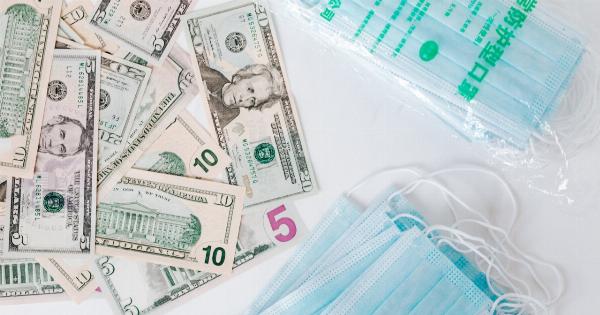In recent years, the consumption of sugary drinks has become a major concern for public health experts.
Research has consistently shown that excessive sugar intake is strongly associated with various health issues, including obesity, type 2 diabetes, cardiovascular disease, and dental problems. Now, a new study has shed light on the alarming impact of sugary beverages, linking them to thousands of deaths worldwide.
The Global Sugar Epidemic
The global sugar epidemic is a ticking time bomb that warrants urgent attention. According to the World Health Organization (WHO), the recommended daily intake of added sugars should not exceed 25 grams for adults and 12 grams for children.
However, studies show that the average person consumes around 50 grams of added sugars daily, with sugary drinks accounting for a significant portion of this intake.
Unveiling the Research
The study, published in the journal The Lancet, analyzed data from 185 countries over a five-year period. Researchers examined the impact of sugary beverage consumption on the occurrence of diabetes, cardiovascular disease, and cancers.
The findings were alarming – in 2017 alone, the consumption of sugary drinks led to an estimated 184,000 adult deaths worldwide.
The Deadly Link Between Sugary Drinks and Diseases
One of the main reasons for the significant health risks associated with sugary drinks is their high sugar content. A typical bottle of soda can contain up to 39 grams of sugar, which exceeds the recommended daily intake.
When consumed in excess, these beverages cause rapid spikes in blood sugar levels, leading to insulin resistance and a higher risk of developing type 2 diabetes.
Moreover, the excessive consumption of sugary drinks contributes to obesity, which is a major risk factor for various chronic diseases. These beverages provide empty calories and do not promote satiety, leading to overconsumption and weight gain.
The constant exposure to high sugar levels also disrupts the body’s metabolism, promoting the accumulation of visceral fat.
In addition to diabetes and obesity, sugary drinks have been strongly linked to cardiovascular diseases.
Excessive sugar intake leads to increased triglyceride levels, elevated blood pressure, and inflammation, all of which contribute to a higher risk of heart disease and stroke.
The detrimental effects of sugary drinks go beyond metabolic disorders. Studies have shown a clear association between the consumption of sugary beverages and the development of certain cancers, including pancreatic, colorectal, and breast cancer.
The high sugar content promotes the growth of cancer cells and triggers inflammation, creating an environment that facilitates tumor progression.
Industry Influence and Marketing Tactics
The association between sugary drinks and adverse health outcomes is undeniable, but the industry’s response to these concerns has been disheartening.
Beverage companies have long been criticized for their aggressive marketing tactics targeting children and adolescents. These marketing strategies heavily influence consumer behavior and perpetuate the sugar addiction cycle.
In recent years, there has been a surge in the availability and consumption of energy drinks, flavored waters, and fruit juices marketed as “healthy” alternatives to soda.
However, these products often contain just as much, if not more, sugar than carbonated beverages. Misleading advertisements and clever packaging contribute to the misconception that these drinks are a nutritious choice.
The Urgent Need for Public Health Interventions
The staggering number of deaths associated with sugary beverage consumption demands immediate action. Governments worldwide need to implement evidence-based policies and interventions to curb this public health crisis. Some potential strategies include:.
- Implementing Sugar Taxes: Taxing sugary drinks can deter consumers from purchasing them, leading to a decrease in consumption. Countries like Mexico, the United Kingdom, and France have already implemented such taxes, experiencing a notable reduction in sugary beverage intake.
- Restricting Marketing: Banning or limiting the marketing of sugary drinks to children can significantly reduce their exposure and prevent the development of unhealthy habits from an early age.
- Improving Labeling: Clear and easily understandable labeling on sugary drinks can help consumers make informed choices and avoid excessive sugar intake.
- Providing Education and Awareness: Public health campaigns aimed at raising awareness about the health risks of sugary drinks can help change consumer behavior and promote healthier alternatives.
- Promoting Water and Healthy Options: Increasing the availability and affordability of water and other healthier drink options can encourage people to make better choices.
The Way Forward
The evidence linking sugary drinks to adverse health outcomes continues to mount. As individuals, it is essential to be mindful of our beverage choices and limit our intake of sugary drinks.
Opting for water, unsweetened tea, or natural fruit juices can significantly reduce our sugar consumption.
However, the responsibility does not solely lie with the consumer.
Governments, healthcare professionals, and the industry must work together to create a supportive environment that facilitates healthier choices and reduces the availability and appeal of sugary beverages. Only through collective action can we combat the devastating impact of excessive sugar intake and improve the well-being of individuals worldwide.






























